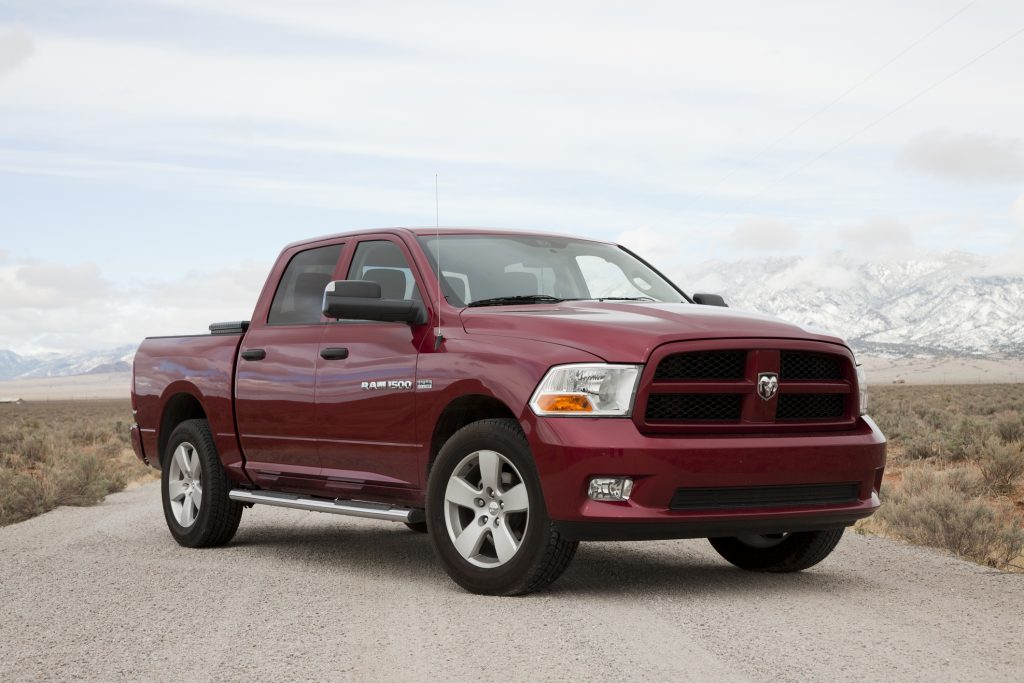When you’re getting ready to buy a new truck, knowing how long you can finance for is crucial. The repayment terms can impact your financial situation in many ways. We’ve researched the topic of vehicle loans in-depth, so you get the answers you need to make a smart purchase decision.
As with most vehicles, the length of time you can finance a brand-new truck ranges between 36 and 96 months - terms of three and eight years, respectively. Not every shopper wants to pay on a vehicle for 96 months, however. Knowing which term offers the best deal helps you get the most bang for your monthly buck. Plus, for used cars, the conditions can vary based on the value of the truck, your credit status, and other factors. Your ideal rate depends on what your vehicle is worth, how high the interest rate is, and what your monthly income looks like.

It gets even more complicated, though, when you factor in depreciation, variable interest, and your debt to income ratio. Don’t worry—we’ll cover every aspect of car loans here. Keep reading for everything you need to know about financing a truck.
On a new vehicle straight off the sales lot, you typically have a handful of loan options. With good credit, monthly income that’s high enough to support your existing debts, and a vehicle with a definite value, banks will offer you loan terms ranging from 36 to 96 months long. Choosing a 36-month loan on your truck means three years of payments. But the shorter your loan term, the higher the monthly payment. In contrast, a 96-month loan lasts for eight years. The total cost of your truck spread out over seven years means a significantly lower monthly payment.
But Is A 96-Month Loan Really A Good Idea?

In most cases, no. When you take out a loan of any type, you pay for that financing. Interest rates vary widely, as do specific loan terms, but for a vehicle, you can expect to see interest rates averaging 4 to 5 percent. Of course, the rate you receive depends on your credit score, existing debt, and the calculation of your debt to income ratio.
Lenders determine how much of a risk you are—whether you’ll skip out on paying them—based on your creditworthiness. If you have poor credit, you can expect higher financing rates that are favorable to the bank, not you as a consumer. The more imperfect your credit, the higher your interest rate—so the higher your payments are per month. Add a longer loan term to that scenario, and you’ll end up paying more over time. You can even become “upside down” on the loan and owe more than its resale value.
In contrast, if you choose a shorter loan term—say three years—the payment will be higher each month. You’ll still pay interest, but the amount will be less because the timeframe is relatively short. Of course, if you can’t pay the monthly fees, long-term affordability is a moot point.
Buying a new truck is often the way to get the best value for your money. Dealer warranties combined with brand-new vehicles with zero miles means a reliable vehicle you can trust. But buying brand-new isn’t the only way to go, and it isn’t always the best financial option, either.
A brand-new truck will depreciate to around 20 to 30 percent of the sticker price the first year you own it. Years two to six involve further depreciation of 15 to 18 percent. So although your loan may be manageable, your truck value starts to drop immediately—which can be bad news for your investment.
What’s The Best Loan Term To Choose?

A general rule for financing a truck is to choose the shortest loan repayment period possible. But depending on your finances, the quickest loan may not work out.
If the sticker price on your truck is high, you may not be able to afford to finance it for three years. The payment would be too much to manage each month. At the same time, choosing a 96-month term means more interest over time, which isn’t ideal, either. Experts also note that longer loans also tend to have higher interest rates—making a long loan a double whammy for your budget.
Debt To Income Ratio
A debt to income ratio is your monthly expenses divided by the gross monthly income you earn. Essentially, you shouldn’t spend more than 43 percent of your monthly income on debt. Your housing payments, any credit card balances, and even health care debt can factor into this scenario.
Using your current credit score and financial situation, look at payment scenarios to decide what you can afford. Most lenders want you to maintain a debt to income ratio of less than 43 percent.
Use this figure to determine what’s indeed affordable for your budget. Then use loan calculators to determine what truck values you can afford to finance.
How Long Can You Finance A Used Truck?
While financing a new truck can result in terms as long as 96 months, used vehicles are different. Most lenders typically offer a maximum repayment period of seven years for used cars—an 84-month term.
But while a seven-year term means a low monthly payment on your used truck, the interest alone can mean you’ll pay thousands more of the life of the loan. Still, in 2018, the average used car loan term was 60 months or five years.
Can I Buy A Truck With Zero Money Down?

You can purchase a brand-new truck with zero money down from many dealerships. Even used cars can be financed with no cash out of pocket up-front. However, this makes your monthly payment higher (and the overall loan amount bigger).
The more money you can put down up-front, the less you’ll owe the bank for financing the purchase. Experts generally agree that a 20 percent down payment is ideal. Of course, most vehicle loans don’t require down payments the same way mortgage lenders do.
Still, if you have the cash to spare, it’s better to put it toward the vehicle cost rather than your interest payments later.
Can I Finance A Truck With No Interest?
Many manufacturers offer zero interest programs for at least part of the life of your loan—but only on new vehicles. It’s uncommon to find such deals on used vehicles because their value is significantly lower.
If you can find a zero percent APR loan option, it makes sense to consider it. But know how long the interest period lasts and make sure you can manage the post-offer period APR—they usually go up exponentially.
How Can I Get The Lowest Interest Rate On A Truck?
Typically, the higher your credit score, the lower your interest rate. Sometimes, though, the vehicle you’re buying or the lender you’re working with won’t budget on the percentage. Also, the longer the loan term, the higher you can expect the interest to be. To secure the lowest interest rate possible, try to clean up your credit before shopping for a new truck. Paying your bills on time—and paying down existing debt—can help bump your score up a few points.
Consider vehicle shopping around the holidays, too. President’s Day, Labor Day, New Year’s, and even the Fourth of July can be excellent times to take advantage of dealership sales. Fall going into winter is another opportune time to buy because brands are trying to meet end-of-year sales quotas. For that reason, October through December may be great time for a new vehicle purchase.
Another way to achieve a lower interest rate is by shopping around. Instead of using the financing options at the dealership, consult your financial institution first. Many banks and credit unions offer their members better deals than dealerships can. If you’re a current or former US service member, there are unique loan options available for you.
Finally, you may be able to achieve a lower interest rate by having a co-signer apply with you. Someone with better credit—and more disposable income—can bump you over the threshold to a more affordable interest rate. If you have your heart set on buying a new truck, knowing how and why to finance is crucial. We’ve covered the ins and outs of new truck loans here so you can make the smartest purchasing decision possible.



